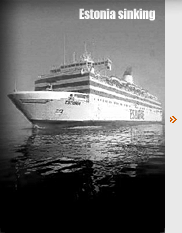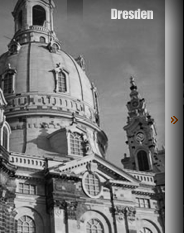May 3, 2007
Dear Chris,
I appreciate L.'s heartfelt letter to you of April 30, 2007, and the concern that it evinces for your family. I especially appreciate, however, its last two paragraphs. They illuminate the true mettle of her soul and show forth a Woman who is intent on plumbing the depths of injustice for the sake (some day) of (more) justice for us all (as well as for herself).
One could argue that the issue of a plea bargain is a political issue, but, I prefer to think of it fundamentally as a moral and, ultimately, as a spiritual issue. (All Bible quotes below are from the KJV translation.)
On the one hand, God requires us to "submit [our]selves to every ordinance of man [which was designed] for the Lord's sake [and/or which promotes His good purposes]" (I Peter 2:13a), to "confess …our faults" (James 5:16) when we violate such ordinances (as well as God’s own Laws and precepts), and to “agree with [our] adversary quickly whiles [we] are[e] in the way with him, lest at any time [he] deliver [us] to the judge and the judge deliver [us] to the officer, and [we] be cast into prison” (Matthew 5:25).
There are some things, however, that we must do in order to determine whether we have violated any such an “ordinance of man.” Firstly, we must not just presume that we are innocent when we are not, for God hates presumption (see Numbers 15:30; Psalm 19:13; II Peter 2:10).
Secondly, we must earnestly have our souls “examined” by God through prayer (see Psalm 26:2; 139:23-24), by our own deep soul-searching (see I Corinthians 11:28a; II Corinthians 13:5), and by the counsel or admonitions of our friends and/or enemies (see Proverbs 27:6,17; I Corinthians 9:3).
And thirdly, if we survive all of this examination and come out with a well-informed, tested, and yet still good conscience (see Acts 24:16; Romans 2:15; 9:1;13:5; II Corinthians 1:12; 4:2; I Timothy 1:5,19; Titus 1:15; Hebrews 9:14; 13:18; I Peter 3:16, 21), then we must draw the proper conclusions and conduct ourselves honorably in accordance therewith.
How then should we live? Again, on the one hand, God requires us not to be purposelessly or unnecessarily “contentious” (see Proverbs 26:21; Romans 2:8) and to "live peaceably with all men," but only "if it be possible [and] as much as lieth in [us]" (Romans 13:18), the capacity for which will vary with each individual, so the Scripture implies. So we see that there is some wiggle room here.
On the other hand, God also requires us to “know the truth" (John 8:32a; I Timothy 4:3), to “cho[o]se… the…truth” (Psalm 119:30a), to "belie[ve]...the truth" (II Thessalonians 2:13b), to "obey the truth" (Romans 2:8, Galatians 3:1, 5:7, I Peter 1:22), to “acknowledge[e] the truth” (II Timothy 2:25b; Titus 1:1), to "bear witness unto the truth" (John 18:37), to “testify of the truth” (III John 3), to "speak the truth" (Ephesians 4:15, I Timothy 2:7b), to "tell the truth" (Galatians 4:16), to "say the truth" (II Corinthians 12:6b), to "say nothing but the truth" (II Chronicles 18:15), to “lie not against the truth” (James 3:14), to not “err from the truth” (James 5:19), to “do the truth” (I John 1:6), to “walk in the truth” (John III:3), to “live” the truth (Galatians 2:20; Philippians 1:21; Hebrews 13:18b; I Peter 2:24b; 4:6c), and even to be indwelled by the “truth” (II John 2) so that “the truth…shall be with us forever” (II John 2), thus making us literally “of the truth,” which supreme spiritual Reality “assures our hearts before [God]” (I John 3:19), after which “the truth shall make [us] free” (John 8:32b).
Notice that the truth cannot simply “make us free,” if we just rely on attorneys, or on the actual facts, or on the inherent justice of the System, or on the common sense of jurors, or even on our own perfunctory prayers. “The truth shall make us free” only if we comply with all of the conditions as set forth in these paragraphs (and perhaps with some others as well).
Now I ask you: after you have been drenched in all the truths of the preceding paragraphs and after you have performed the requisite self-examination as indicated above, do you really believe it is the truth that you committed a crime on that fateful day last August?
If not, and knowing that to “lie against” and to “err from” “the truth” is to sin and that to sin – especially to be counted among “liars –…[is to] have…part in the lake which burneth with fire and brimstone, which is the second death” (Revelation 21:8), are you really prepared to confess to the court (and hence to all the world throughout all time) that you committed a crime?
Will you be able to live with such a betrayal, knowing how it could influence your children, should they ever conclude there from that they too can commit any old indiscretion or crime, lie about it, and get off lightly? Is that the kind of legacy that you wish to leave to them?
Or would you rather see them suffer some economic hardship (as have millions of other children throughout history who still grew up to become great men and women in spite of it) and grow up being incredibly proud of their father and being influenced, perhaps, to become, in their own ways, as great a prophet as their father is in (controversial) truth-telling?
Could you ask for more blessings for your children that they should grow up to become equally as indefatigable and on fire for the truth as you have been?
The Bible reports that John the Baptist told the (controversial) truth about the sins (which at that time included the unlawfulness) of King Herod and got beheaded for his (controversially) truthful efforts, and Jesus praised John for being the greatest prophet that Israel had, up until that time, ever produced (Luke 7:28a).
God warns us that a life of (controversial) truth-telling (and the telling of all really deep truth is controversial), i.e. that a life of prophecy – for truth-telling is what prophecy is biblically defined as – is not a bed of roses.
On the one hand, it is much easier in many instances not to prophesy or to tell the (controversial) truth. If, on the other hand, we are led to embark upon a career of prophecy – of telling the (controversial) truth – then we must be consistent (or, in biblical language, “non-dissembling”) in our truth telling (see Psalm 26;4; Proverbs 26:24; Jeremiah 42:20; Galatians 2:13).
“Let your communication be ‘yea, yea’ [or] ‘nay, nay.’ Whatsoever is more than these cometh of evil” (Matthew 5:37).
Telling the truth on the Internet but not in court doesn’t wash! God warns us that “all [who] will live godly…shall suffer persecution” (II Timothy 3:12), but in that persecution, “this is thankworthy, if a man for conscience toward [the truth] endure grief, suffering wrongfully. For what glory is it, if, when ye be buffeted for your faults, ye shall take it patiently? But if, when ye do well and suffer for it, ye take it patiently, this is acceptable with God. For even hereunto were ye called, because Christ also suffered for us, leaving us an example that [w]e should follow in his steps” (I Peter 2:19-21).
In other words, an honorable man (who honors the truth by consistently telling it) can take solace in God’s promise to honor him, if not in this vale of tears, then in heaven. Pie in the sky, you say? You don’t believe in the Bible?
Well, I say that even if an atheist could prove that there is no transcendent truth or God or heaven (which he can’t), that still wouldn’t negate the value to your children and to all others who are watching you of your heroic stand for truth, like that of Socrates, would it? Socrates could have run away (either by fleeing or by compromising the truth), but he chose to stand for and to tell the (controversial) truth (as he saw it), and his example shall continue to inspire the hearts of secularists (and Christians alike) throughout all time.
Isn’t that alone a worthy legacy for any honorable man and his family? Can economic hardship of one’s family ever justify a serious betrayal of the truth which a false confession of crime always entails? No, God honors those who honor Him, and as for children and/or wife left behind? “God setteth the solitary in families; He [also] bringeth out those which are bound with chains” (Psalm 68:6a+b).
Practically speaking, I do not wish to belittle the consequences to you and your family of a possible conviction and incarceration, which could conceivably happen, now that so many crimes and torts are being committed by state actors in your prosecution, but I still believe that:
1) you could easily convince a jury of your innocence – even without an attorney – just by prophetically telling the (controversial) truth and letting the chips fall where they may;
2) if convicted, you may be able to induce someone out there to finance your appeal, which must be overturned at some higher level, but if not, you would surely, as L. suggests, only get probation or supervision and, at most a nominal fine or a few days or weeks of community service.
None of these most likely worst-case consequences – not even a few months or a year in jail – would even come close in my view to the horrible prospect of confessing to the court and to all mankind (because, remember, you have the whole world watching your case, now that you’ve advertised it on the Internet) by means of a plea bargain that you have committed a crime.
Galileo was a great scientist, but his false confession cost him what – the loss of his self-respect and, much more importantly, the honor of truth, which he betrayed.
Finally, there is much left in your case that can be done: 2nd Motion to Dismiss, removal, etc. Don’t lose heart! Decide now, in your soul, that you’re in this battle for the long haul – whether in this country or wherever you may move to in the (probably false hope of finding refuge from the NWO) – and then the rest of your battle and life will have a surer foundation than they now have, and you’ll be happier, less depressed, and more blessed.
Faith in and an honorable stand for truth, my brother, is its own (and very rich) reward.
D.





 The Bollyn Trial
The Bollyn Trial The Bollyn Trial - Truth vs. Plea Bargain
The Bollyn Trial - Truth vs. Plea Bargain



